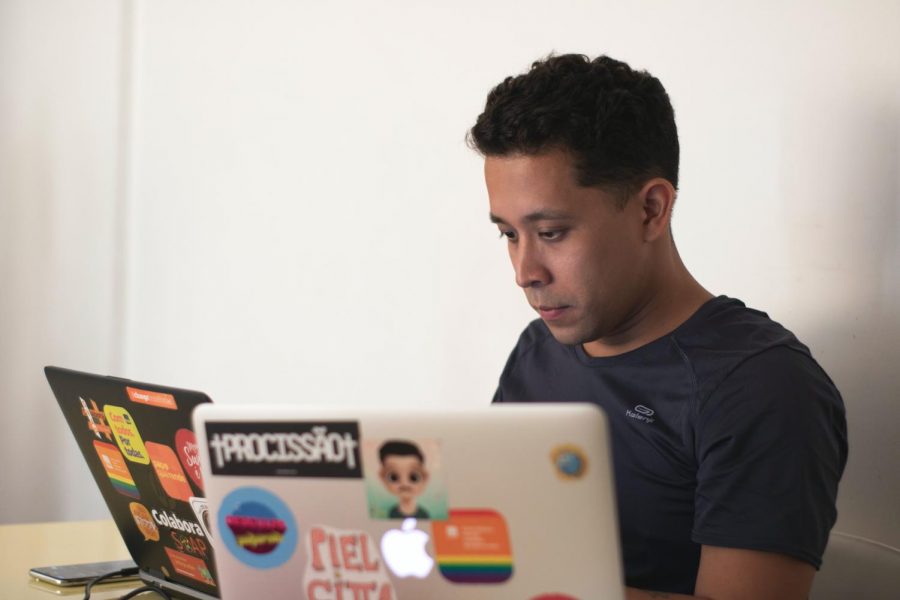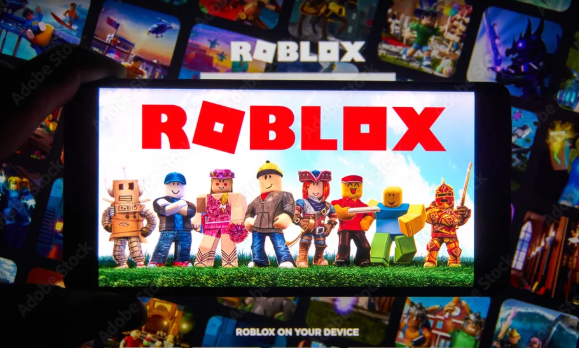Dear Teachers,
December 8, 2020
“I don’t understand how students can be struggling online, their class periods are longer and they have less work. What’s the issue?”
Variations of this question have been asked to nearly every Santiago High School student over the course of this pandemic by at least one teacher, but the answer isn’t as simple as you would think. Online classes can be draining, can magnify personal issues, and force students to teach themselves material that is not being explained during the allotted/shortened class time.
When I attended school in-person prior to the pandemic, I was tired. Waking up before sunrise to spend six hours learning every day for 11 years tends to be exhausting for most, but even then I had moments of relief. One of the primary benefits of attending school physically is the peer to peer interaction. Although many remote teachers allow conversation between fellow students during Zoom sessions, this minimal and solely work-focused conversation does not provide the socialization that most teens need. Socialization is vital for teen development. We’re all humans and humans crave social interaction. Pre-pandemic classes always had downtime. Teachers chatted with us about our weekends, last week’s football game, upcoming movie releases. We were allowed to turn to our partners and talk during group work. It’s hard to mimic those interactions on a Zoom session.
Excessive social withdrawal would normally be a defining sign of psychosis or weakened mental health, and it has now become the norm. NCBI states, in a psychiatric journal, that “In a university sample in Spain, high numbers of students experienced moderate to extremely severe scores of anxiety (21%) and depression (34%) during the first weeks of confinement” and yet the work keeps piling on. I remember last year during finals week my friends and I went out to lunch every other day to prevent mental breakdowns that were all too common in AP classes. This year, socialization has been reduced to texts and calls, and the same individuals who were struggling with support last year describe their mental states as “depressive” with one individual going so far as to say that the isolation she was experiencing had made her consider suicide.*
For me, at least, school served as an escape from the rest of my life. Despite the stress of my classes it was good to get out of the house and separate myself from the day to day drama of my family. Nowadays, the separation of my two worlds is nearly impossible. And based on my discussions with other students at Santiago, this is the case for almost everyone attending exclusively online classes. Moreover, the relationship between parent and child has been strained over these last six months like never before. Many have been trapped in small houses – even sharing rooms – with family members 24/7 for the last half of the year. That alone causes a strain on any family.
And while all of this may seem overwhelming on its own, the increase of domestic abuse cases has been described as a “pandemic within a pandemic”. For the first few months of quarantine police stations and domestic abuse shelters were expecting an influx of calls. But the results were shockingly the very opposite, in some regions the number of incoming calls dropped by nearly 50% according to the New England Journal of Medicine. This decrease was not due to a decline in actual cases, but rather an inability for victims to speak out in such close quarters to their abusers.
Closures of all schools and some child care facilities have raised stress in homes making violence all the more prevalent. And students in families who are unable to remove themselves from the situation find less and less motivation to attend schools that overwhelm them with work and are far more likely to develop substance abuse issues. This inability for teens to escape negative environments will have catastrophic downsides for their mental health, grades, and futures. Teachers want to prepare us for the”real world” but this is our current world, and for many of us, these are things with which we are struggling.
The learning process is even more difficult than ever. Ask any Santiago student and they will tell you that at least one teacher spends very little time engaging with their students in a meaningful way and rather turns to videos or busywork that leave students confused, forcing them to teach the material to themselves. Not to mention, most of the time these teachers are pulling their lesson material, worksheets, and tests from the internet. And unfortunately, teachers, if your papers can be found online, students will cheat. If you do not fully explain the lesson material, students will cheat. If you assign excessive amounts of work with little to no substance or educational value- you guessed it, students will cheat. But can we really blame it on the students? Yes, but if the material they need isn’t being provided to them in a digestible way, teenagers will always take the easy way out. It’s just what we do. Teachers that come onto zoom for five minutes and instruct students to watch a video have not done their job. Why do you expect 14-17-year-old children to be responsible if that same responsibility is not being reflected by the adults? If you are teacher reading this, you might very well be doing your best, but with almost a year of distance learning under my belt, I can promise you that that is not the case for every teacher.
But don’t get me wrong, there are teachers who go too far in the opposite direction. At the beginning of the year, I was told by one of my teachers that I could expect around 2-3 hours of homework every class period. If every educator had this mentality I would be spending upwards of 11 hours a day on my computer. In fact, there was one teacher who told me – and they were proud of this – that only a handful of students would earn an A. I imagine this teacher was attempting to motivate their students, but for my friends and I, all it did was confirm our worst fears: that we would never be smart enough. I understand that these are difficult times, but it is important to find a happy medium that fosters children’s education rather than discourage them from trying altogether.
Most teachers care very deeply about their students – I know this. Most students care very deeply about their education – trust me we are all well aware how our academic performance in high school will impact the rest of our lives. We need to find a way to work together during the second semester and make the experience all-around more effective for everyone involved. Talk to us. Ask us – maybe in small group or anonymously – how we are feeling. Maybe let us prioritize what lessons are most important. Survey us about the impact a certain activity had. Tell us why we are learning something and how to apply it to something greater. I hope with this I can open up the dialogue for both sides to communicate what will make 2021 a great year for everyone involved. We know you care. Believe it or not, we care too.
*This student is currently seeing a therapist and is under professional care.












kadance • Jan 15, 2021 at 4:25 pm
incredible article! so well written!! thank you.
Madelyn Park • Jan 13, 2021 at 7:15 pm
This was perfectly worded and so encouraging to realize that I’m not alone in this struggle! Great article!
Gabriela Puerner • Dec 10, 2020 at 11:39 am
In response to Michael Bolton, the article is in fact written by students. ALL of the facts are cited and from official scientific research. The pandemic has also clearly been going on long enough to gather data on students. Take your negativity elsewhere!
Michael Bolton • Dec 10, 2020 at 11:28 am
This entire article is wrong. Teachers have no idea how hard it is to learn online curriculum through a zoom that can be extremely laggy at times. It is hardest on upperclassmen that have more at stake than lowerclassmen. Upperclassmen have the risk of being set back majorly in their goals if they don’t try and figure it out.
The percentages were also wrong because the pandemic has not been going on long enough to gain accurate data on students. We as students not only have to do schoolwork and study, we also have lives that we need to live. Not being able to see our friends and talk with them at school has a severe impact on our mental health as well as our ability to handle stress. If you think for one second this article was written by a student, then you obviously aren’t a student. A real student at Santiago would be more accurate in their information as well as make better points. This is obviously an administrator or teacher that wrote this.
Santiago senior • Dec 10, 2020 at 11:45 am
hey micheal! This article was written by a Santiago senior! We tried to highlight that online education was very difficult for students and that because of these difficulties teachers should go easier on students. Especially upperclassmen who really care about their grades. We feel as though We brought up the mental health issues, home issues, and many others in this article in an attempt to explain to teachers how difficult it really is and to encourage us to communicate so that the situation can be better for both teachers and students. Regarding the data, everything has been sited and the mental health effects could be seen negatively impacting students almost immediately, as could the effects of domestic abuse. I love seeing different perspectives and I appreciate the comment! This article was written from the perspective of just one senior who feels as though students have it hard during the pandemic and it would be extremely beneficial to communicate our complaints with teachers.
Tia • Dec 10, 2020 at 10:42 am
Thank you for writing this, I completely agree!
Colbie • Dec 9, 2020 at 11:10 pm
Thank you for writing this article. This semester has been incredibly difficult and it’s reassuring to know that other students are feeling the same way I am.
Hannah M • Dec 9, 2020 at 10:01 pm
This was beautifully written and it accurately depicted what has been going on. I really appreciate you posting this, thank you!
maddie finn • Dec 9, 2020 at 4:10 pm
This was really well written and hit all the check marks of how we are all feeling. I really enjoyed it!
Ariah M. • Dec 9, 2020 at 2:01 pm
This article was amazing!! You were able to say what most of us have been thinking and for that we all appreciate you! I couldn’t have said anything you said better:)
Lauryn • Dec 9, 2020 at 1:30 pm
Factsssss.
Angelina • Dec 9, 2020 at 1:27 pm
I really needed to hear this today.
Eddy • Dec 9, 2020 at 1:22 pm
Take 5 minutes, this will make your day!
Earl • Dec 9, 2020 at 1:19 pm
Everybody needs to see this! I can’t stop reading this article!
Hannah Dykstra • Dec 9, 2020 at 1:04 pm
I am very glad you wrote this article and agree with everything you’ve said. I believe a great deal of my classmates main concerns were centered around the fact that most teachers have completely overlooked that the first semester of senior year is college application season. This time would already be stressful if life were normal, but throwing in the fact that students are lacking the social interactions which would help relieve this stress makes our situations much more difficult. Over the years I have been enrolled in multiple AP classes at Santiago and I understand the workload that comes with them, but during virtual learning it seems as if a majority of teachers believe their assignments are the only important things their students are doing at home. In reality many students I know are still involved in sports, virtual clubs/events, have jobs, or they are facing the personal issues mentioned in this article . I also understand that teaching virtually is very challenging and takes a toll on teachers as well, which should not be overlooked. I hope that next semester students and teachers will be able to communicate with each other better during virtual learning.
Emma • Dec 9, 2020 at 1:00 pm
Thank you for writing this!
dweeb • Dec 9, 2020 at 12:52 pm
this some real sh*t, but the teachers have it hard too and what do u want us to do go back to school and catch COVID or u think that its a hoax LOL
G • Dec 9, 2020 at 11:40 am
This was beautifully spoken and presented and I’ve been blessed with my teachers that give resources to students that need help mentally and emotionally during these tough times. In spite of this, I know that some teachers really need to see this to understand the extreme impact physically, mentally and emotionally that online and distance learning has on some students. Also, if you are reading this you got this and we’re all going to get through this together.
Mario Pazos • Dec 9, 2020 at 11:36 am
I 100% agree with this article and am relieved people feel the same way. It’s hard being stuck at home all day and the more and more we stay like this the less motivation we get. Very well written. Communication is always Key
Ana Karine Pazos • Dec 9, 2020 at 11:10 am
Well said !! I completely agree:)
Andrew • Dec 9, 2020 at 11:04 am
If this isn’t the realist sh*t I’ve read then I don’t know what is. Our parents and teachers don’t understand the toll it takes on people when you’ve been inside your house since April. And now for most of us seniors we are required to pass every class while having depression, anxiety, and even stress. I like the education system does not care about those issues as much as they say they do. Counselors and AP truly don’t care about your problems, because fail or pass either way they get paid. Thank you.
Alana lee • Dec 9, 2020 at 10:57 am
Love this article, perfectly said for sure! Completely agree
Jaeda • Dec 9, 2020 at 8:07 am
I agree with this article, I hated having to start out highschool online, It was hard enough because I just moved to California and didn’t have friends but then making friends was tricky. I also have low grades because I don’t know what’s going on half the time. Its also hard with attendance because some classes will go on later or end earlier and it’s difficult trying to figure out everything
Bella • Dec 9, 2020 at 1:06 am
I agree 100% with this article. Everyone is going through something different right now and I feel that this article highlights all of the main problems my friends and I face. From reading previous comments I will also like to add that teacher to student communication is key for an efficient learning environment, however student to teacher communication is just as important. One of my teachers is very open to feedback and constructive criticism (she expects the same from us) and even though I cannot speak for everyone in my class, I can say that my friends and I have had an easier time learning in her class. If we all communicate with each other I am sure most students and teachers will feel much better about our current circumstances:)
Jonathan Monroe • Dec 8, 2020 at 9:02 pm
Great job, well written. Your comments are consistent with what our son has experienced this year “with you” at Santiago. Thank you for putting this together!!!!!
madison • Dec 8, 2020 at 8:50 pm
This writing defined every single high school students life right now. Thank you for writing this and for taking the time to remind students we are not alone. Also for the teachers saying that they struggle too because “students do not participate” or that they’ve “tried various solutions” thank you, we appreciate you. What I feel to say about that though, is that regardless of the situation, you still get paid, students on the other hand, especially upperclassman, are facing setbacks for college and ultimately our futures. Please take that into consideration.
Natalie • Dec 8, 2020 at 8:29 pm
I really enjoyed this article. I think that it perfectly articulates the way many students have been feeling, and the need to move forward with teachers in a more collaborative manner.
Chloe Kennedy • Dec 8, 2020 at 8:03 pm
I totally agree with this article! It is very hard for students and teachers to understand each other during this new learning platform!
Ernie • Dec 8, 2020 at 7:51 pm
Great article! This year has been filled with so many challenges and this article perfectly captures what I, and many of my friends, have felt.
Anthony • Dec 8, 2020 at 7:46 pm
Great article! I really agree with everything you said
T • Dec 8, 2020 at 3:22 pm
I agree with the majority of what was expressed. From a teacher’s perspective this is not surprising, for the majority of a teacher’s career we will walk a tight rope. While juggling fine China. Over a pit of rattlesnakes, sharks or alligators–your choice. I’ll let you figure out the symbolism. We have so many responsibilities that yes we can fail, and obviously, in some arenas, we have, primarily our students. I, personally, have tried various modes of communication, but when nothing is reciprocated from students it is very easy to fall into the trappings of just delivering info and see who sticks around. But do please understand that there wasn’t enough time to learn the psychological damaging effects of a pandemic let alone learn how to deal with. There is no single salve to heal these wounds because everyone suffers differently. Even as a teacher my personal life and work life have merged and it is difficult to stop being a parent a husband or wife and a teacher when your classroom is also your bedroom or kitchen or closet. In short I get it. And with the time off I plan on reflecting, but not before I ask my students their opinion on the matter first.
Sachin Chopra • Dec 8, 2020 at 1:14 pm
Thank you for making this article easy to understand.
brooke thurston • Dec 8, 2020 at 12:39 pm
Love this article, I completely agree with all of it:)
lexy witkowski • Dec 8, 2020 at 12:26 pm
Beautifully written article! I can definitely relate!